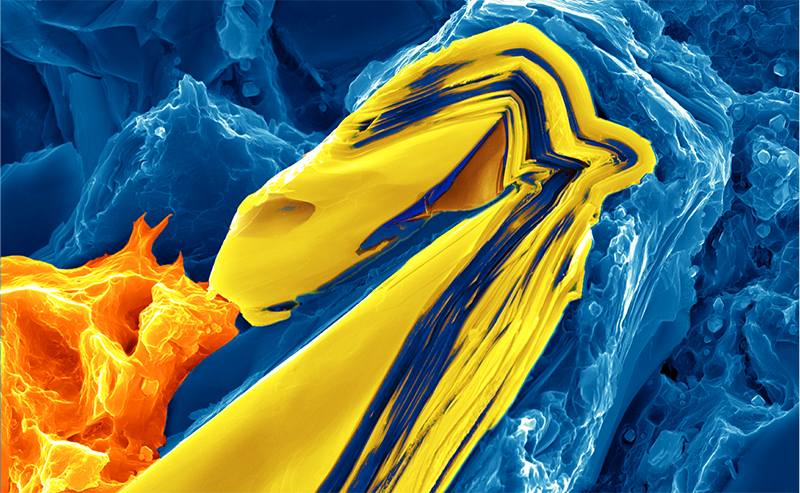
We engineer materials on atomic, nano, micro and macro scales to control their properties and generate advanced performance. After synthesizing materials, we characterize them using state-of-the-art equipment to understand the composition, structure and properties of the materials. Engineered materials make high performance devices possible, from processing capacity in computer chips to energy storage in solar cells to regeneration of tissues in the human body.
Materials science and engineering is an interdisciplinary field that is the foundation for many engineering applications. Materials scientists and engineers extend the current supply of materials, improve existing materials, and develop new, superior, and sustainable materials and processes with an awareness of cost, reliability, safety, and environmental implications. Materials research addresses the pivotal role of materials selection and performance in the areas of advanced manufacturing, energy materials, and health and medicine. Innovation in materials offers exciting entrepreneurial opportunities.
Some examples of Drexel Materials: new two-dimensional MXenes that are engineered to improve battery life for electric cars, crystalosomes and nanopolymer brushes that may change the way drugs are delivered to the body, and additive manufacturing processes for metals, ceramics and polymers to make new 3D structures that can’t be made by normal subtractive processes.
What can I do with a degree in Materials?
Drexel Materials alumni are a diverse group working in academia, industry, government labs, and the non-profit arena in a variety of fields around the globe.
Recent BS graduates are driving innovation at places such as Boeing, Carpenter Technology, DuPont, IBM, Johnson & Johnson, Rolls Royce Aircraft Division, SpaceX, Synthes, W.L. Gore, and many more. Others decide to further their education by pursuing MBA, MS, JD, or PhD degrees.
Recent MS graduates have received employment at a variety of companies including Arkema, DePuy Synthes, Intel, Lockheed Martin, Merck & Co., Specialty Plastics, Inc., and Veyance Technologies, Inc., among others. Other students go on to pursue their PhD degrees.
Our PhD graduates have garnered postdoc positions in academia and national labs, as well as high positions in industry. Places graduates have continued onto post-graduation include Croda, INM Leibniz-Institut für Neue Materialien gGmbH, Intel, Johnson & Johnson, Los Alamos National Lab, Max Planck Institute for Polymer Research, Merck & Co., Naval Research Laboratory, Oak Ridge National Laboratory, Synthes, U.S. Army, University of Pennsylvania, University of Pittsburgh, Vesuvius, and many more.